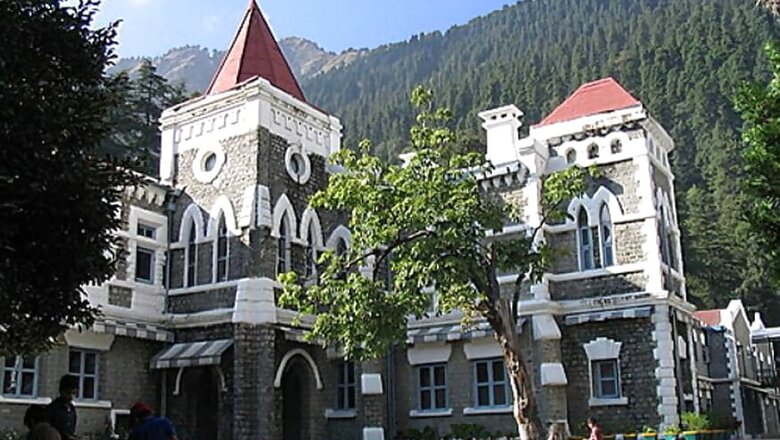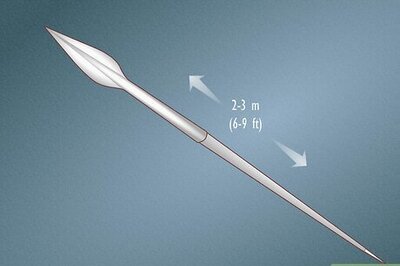
views
Nainital: The Uttarakhand High Court has put a stop to the ongoing construction of hydro power projects in the state and has put the onus on demarcating sites for muck disposal on District Magistrates.
In a landmark verdict on Monday, a division bench of the High Court headed by Justice Rajeev Sharma said,"The District Magistrates throughout the State of Uttarakhand are directed to ensure that no muck, debris or excavated material is dumped directly into the rivers by any hydro-electric company, developers and the authorities responsible for construction of roads.”
The court also ordered that the government must find “suitable muck disposal sites on an urgent basis.
“The Ministry of Environment, Forest and Climate Change, Govt. of India, Uttarakhand Environment Protection & Pollution Control Board and Revenue Agencies, are directed to identify suitable muck disposal sites 500 meters away from the river banks for disposal of muck and excavated material within three weeks from today on utmost urgent basis. The muck shall be deposited/stacked only on the identified muck sites by putting up sign boards. Till the disposal sites are identified and become operational, till then, all construction activities/widening of roads on the river banks in the state shall remain stayed,” read the HC verdict.
The petitioner NGO, Himadri Jan Kalyan Sansthan, had made a case that the state had “failed to take measures to check the haphazard muck/excavated material disposal in the river Mandakini and Alaknanda thereby changing the natural course of the river and causing unnatural rise in the riverbed”.
The counsel for the petitioner Dr Kartikey Hari Gupta told News18 that the primary cause for filing the PIL arose after the 2013 devastation that caused havoc in Uttarakhand.
“June 16 to June 17, 2013, the massive floods came in the Mandakini River which resulted in the loss of thousands of lives and property of the people. It is pertinent to say that we ourselves witnessed that it is only because of the illegal and haphazard dumping of the muck/excavated material along the riverbank and also in the river, the course of river changed from its natural course and flooded the centuries old townships on the riverbank,” said Dr Gupta.
The court has now also directed the state “to ensure that in the environment clearance, including forest clearance, the provision is made for providing muck disposal sites in all the existing and new projects coming up on the river banks”.
Justice Rajeev Sharma set a precedent in the field of sustainable development, law and environment protection, whereby the river Ganga was elevated to the status of a living entity.
The petitioner prayed that companies be stopped from dumping muck/excavated material on the riverbank of Mandakini and Alaknanda river.
They had also prayed for an “enquiry committee” be set up for ascertaining the “quantity of illegal muck/excavated material disposal in the river Mandakini and Alaknanda and alongside the National highway no 58 on unauthorised sites”.
The court, taking a stern approach, has allowed the state to take “coercive” steps against violating companies too.
“The State government is directed to take suitable action and coercive steps against the persons, including companies, government authorities, involved in the dumping of muck/excavating material into the rivers directly in an indiscriminate manner, forthwith,” read the landmark verdict.


















Comments
0 comment